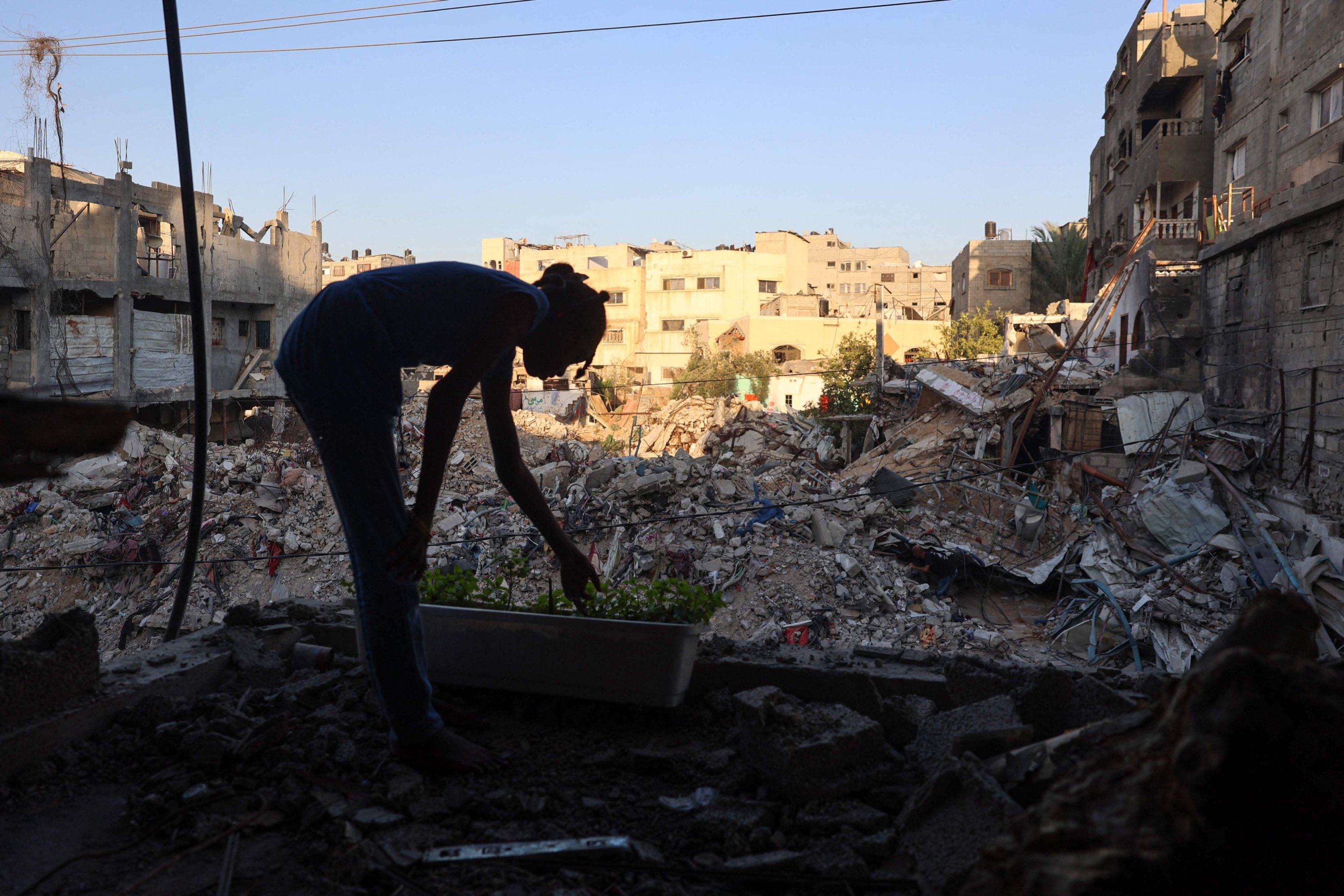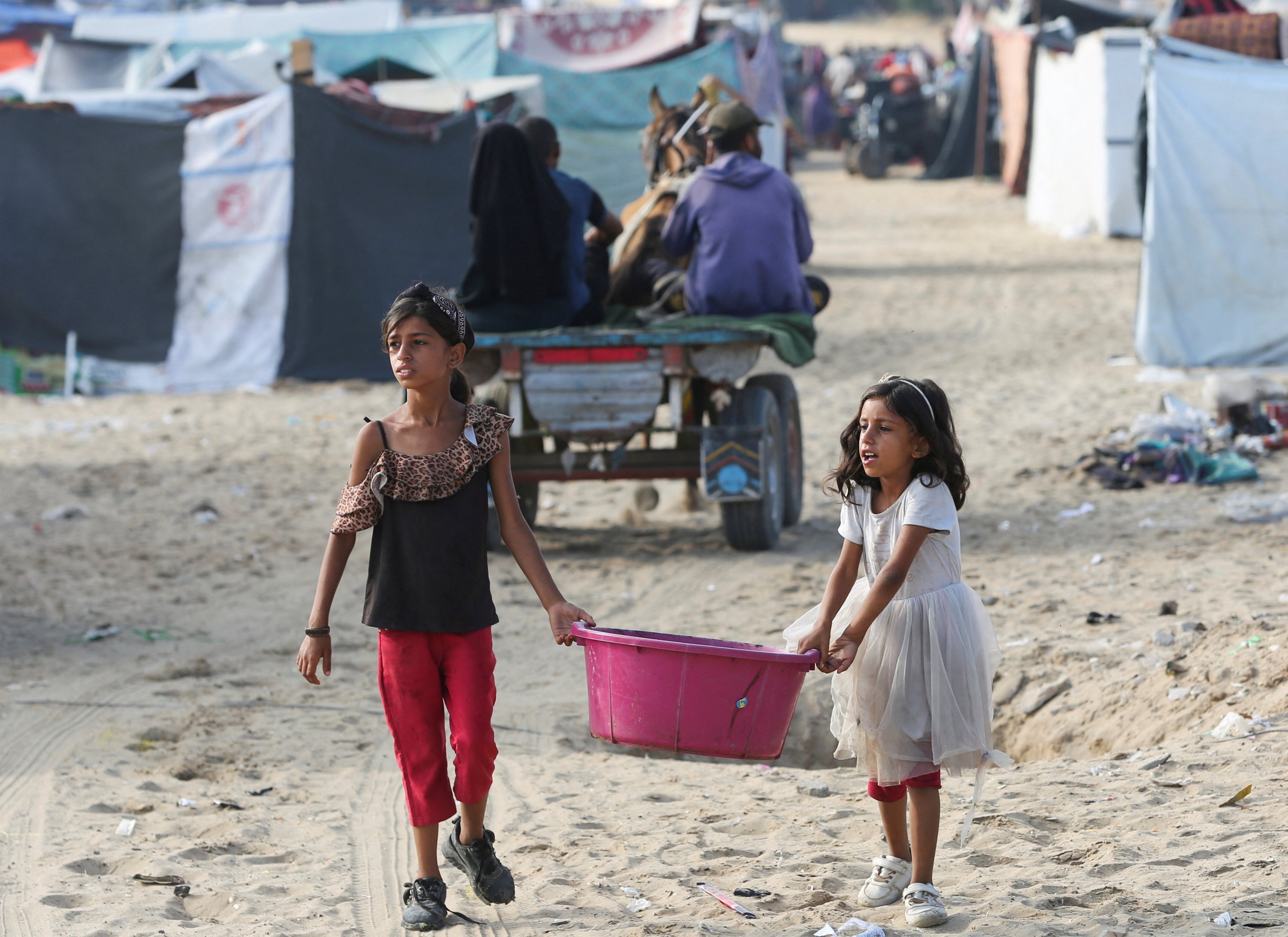© Turkuvaz Haberleşme ve Yayıncılık 2024
Hopes for a cease-fire in Gaza hung in the balance Thursday as Israeli helicopters struck southern Gaza's Rafah, while U.S. top diplomat said a truce was still possible.
Israeli ground forces have been operating in Rafah, near the Egyptian border, since early May to pursue Hamas members, despite widespread international alarm over the fate of displaced people crowded in the city.
Western areas of Rafah came under heavy Israeli fire from the air, sea and land, residents said.
"There was very intense fire from warplanes, Apaches (helicopters) and quadcopters, in addition to Israeli artillery and military battleships, all of which were striking the area west of Rafah," one of them told the Agence France-Presse (AFP).
The al-Qassam Brigades, the armed wing of the Palestinian resistance group Hamas, said its fighters were battling Israeli troops on the streets of the same area.
The Gaza war was triggered by the Oct. 7 Hamas incursion that caused the death of nearly 1,200 people and seized more than 250 as hostages, according to Israeli tallies.
Israel's war on Gaza, in comparison, has killed more than 37,200 Palestinians, the Gaza Health Ministry has said, and reduced most of the narrow, coastal enclave to wasteland.

U.S. Secretary of State Antony Blinken, in Doha on Wednesday for the last stop of a tour to promote Biden's cease-fire roadmap, said the United States would work with regional partners to "close the deal."
Hamas responded to mediators Qatar and Egypt late Tuesday. Blinken said some of its proposed amendments "are workable and some are not."
A senior Hamas official, Osama Hamdan, said the group sought "a permanent cease-fire and complete withdrawal" of Israeli troops from Gaza, demands repeatedly rejected by Israel.
The plan includes a six-week cease-fire, a hostage-prisoner exchange and Gaza's reconstruction.
It would be the first truce since a week-long November pause in fighting that saw hostages freed and Palestinians released from Israeli jails.
Blinken said Israel was behind the plan, but Israeli Prime Minister Benjamin Netanyahu, whose government has far-right members strongly opposed to the deal, has yet to formally endorse it.
Blinken expressed hopes that gaps could be closed.
"We have to see ... over the course of the coming days whether those gaps are bridgeable," he said.
In a statement early Thursday, Hamas urged Blinken to put "direct pressure" on Israel.
"He continues to talk about Israel's agreement of the latest (cease-fire) proposal, but we have not heard any Israeli official speak out on this," it said.
The war has led to widespread destruction of homes and other infrastructure, with hospitals out of service and the UN warning of famine.
The World Health Organization (WHO) said more than 8,000 children aged younger than five have been treated for acute malnutrition in Gaza, where only two stabilization centers for severely malnourished patients currently operate.
"Despite reports of increased delivery of food, there is currently no evidence that those who need it most are receiving sufficient quantity and quality of food," said WHO chief Tedros Adhanom Ghebreyesus.
"I hope for a cease-fire," he said. "What has happened to us is enough."

Some Gazans have called on Hamas to do more to secure an agreement.
"Hamas does not see that we are tired, we are dead, we are destroyed," a Gaza man told AFP, giving his name as Abu Shaker.
"What are you waiting for?" he said. "The war must end at any cost."
Along with the fighting in Rafah, overnight strikes and shelling elsewhere in the coastal territory were reported Thursday.
Gaza's civil defense agency said three bodies were recovered from a home in Nuseirat, central Gaza, after an Israeli strike.
